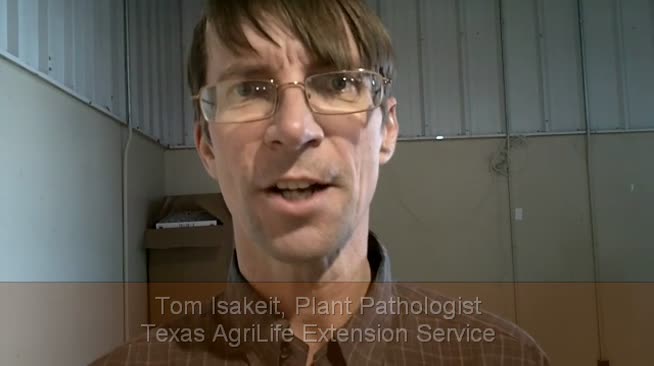February 16, 2012

When the news came down last week that the Environmental Protection Agency had granted Texas a Section 18 emergency exemption to use Topguard to control cotton root rot, no one was happier than San Angelo farmer John Wilde.
“It’s a dream come true,” Wilde said. “This exemption means we can compete economically with good quality cotton. We’ll make better yields and better quality.”
Wilde, who farms with his two sons, Doug and Matt, says raising cotton without root rot infestations could mean from 2 cents to 4 cents a pound more for their cotton, just on improved quality. “We’ll have less low mic cotton, better grades and better staple,” he says.
They’ll also have less “barky” cotton. “Cotton picks up bark from the dead stalks caused by root rot,” he says. “Mills can remove leaf from cotton but they can’t remove bark.” He says cotton from root rot-infested fields typically gets discounted from 2 cents to 4 cents a pound.
Yields also will improve since root rot can cut production by 50 percent or more.
Wilde and his sons have had a vested interest in finding a root rot control. They’ve provided a “root rot nursery” to Texas AgriLife Extension specialists Tom Isakeit, plant pathologist, and Rick Minzenmayer, integrated pest management, for six or seven years. The 8- to 10-acre plot has a history of cotton root rot and provided Isakeit and Minzenmayer an opportunity to screen fungicides and applications methods in a location with consistent infection levels.
Worth the cost
“It was worth the cost to Doug and me,” Wilde says. Doug typically farms that field, and he lost money by keeping it in continuous cotton and setting part of it aside as a check plot. “That field has a lot of root rot,” John says.
Isakeit has a lot of time and energy invested in the project as well. “I started screening materials as a stem drench in 1999,” he says. He says little work had been done on cotton root rot since the 1980s after research projects ended at Texas A&M and in Arizona. “Our efforts really took off with Texas State support,” he says.
You May Also Like




